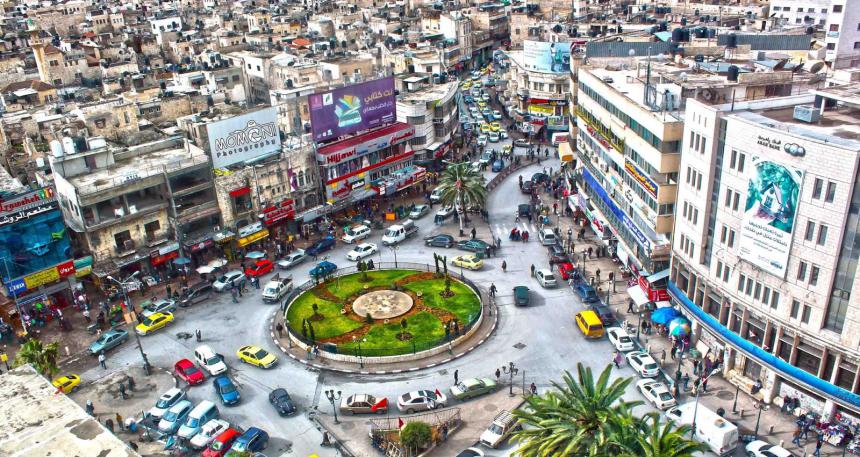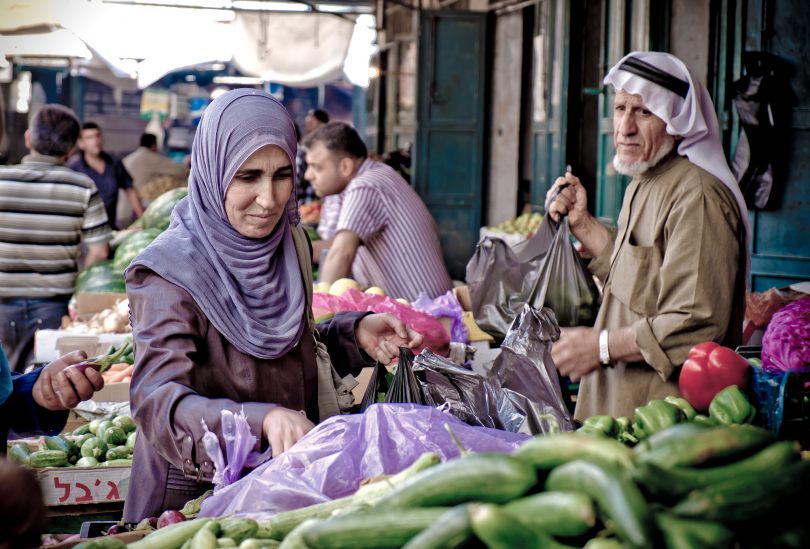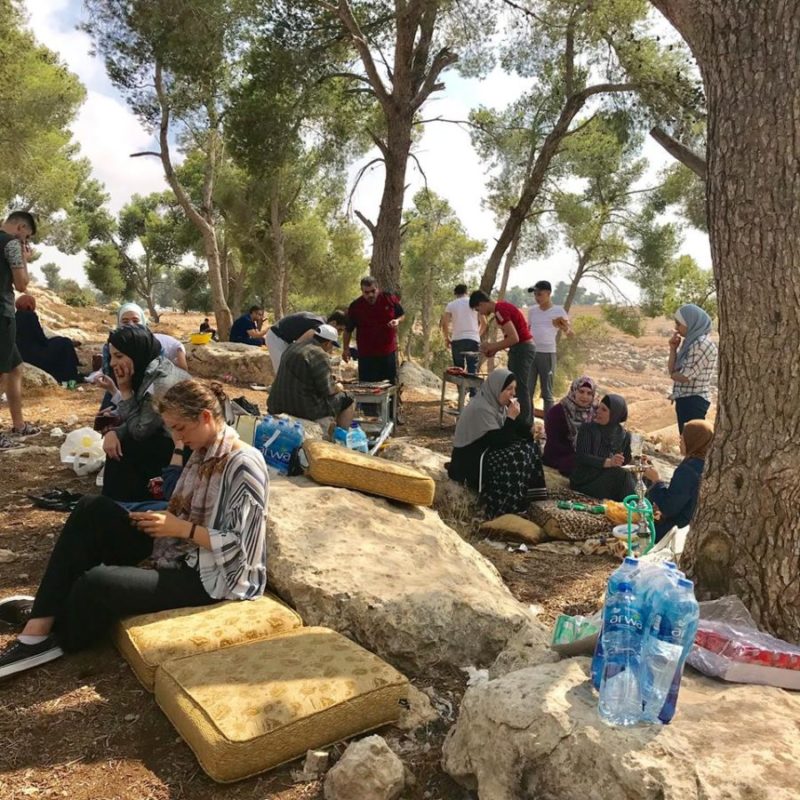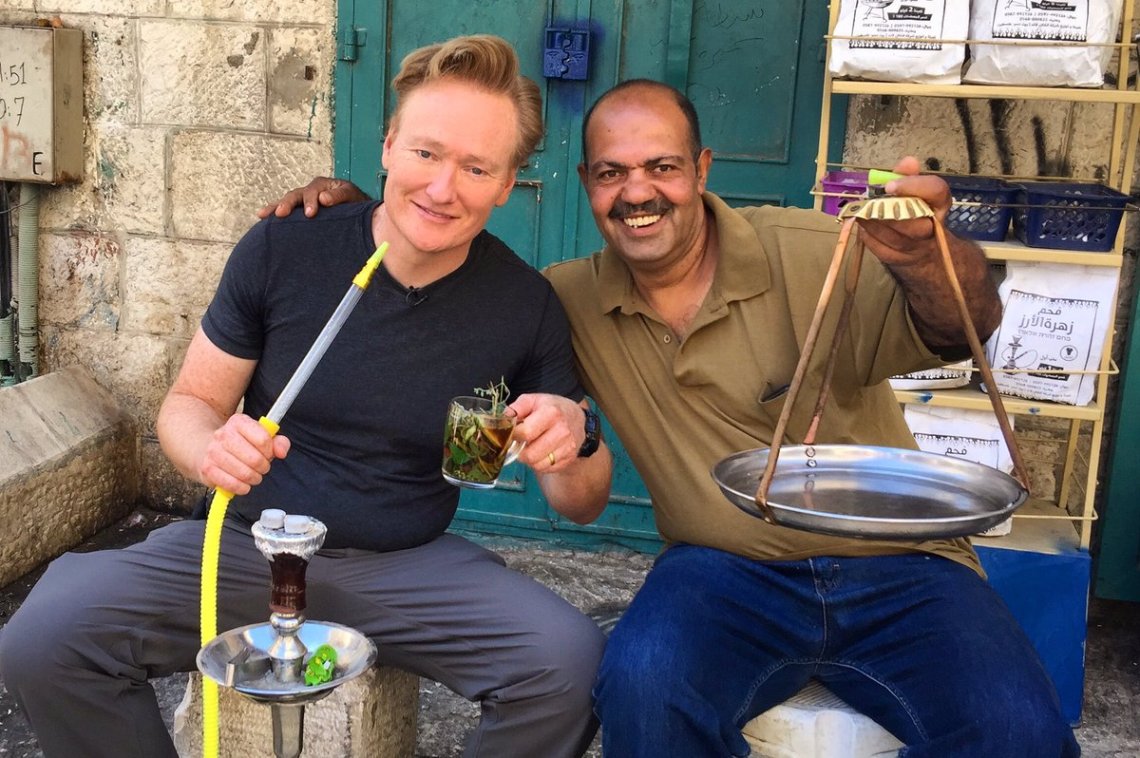Nablus or “Little Damascus”, a trip worth its Knafeh? First advice if you´d like to visit Nablus or pretty much any other Palestinian city/village (with a few exceptions like Bethlehem/Jerusalem), avoid Fridays as it is their day off. We did so on a Friday and stayed Saturday morning by choice but we wouldn´t recommend it. Nablus is home to the largest Palestinian University: An-Najah National University and also the Palestinian Stock Exchange. “The special importance of the Old Town of Nablus results from its being a historic town consisting of special buildings built in the traditional architectural style and construction methods that are no longer in use, together with a unique urban pattern, which is well preserved.” Over the years, it has undergone careful restoration.
First of all, one cannot escape going to the mythical “Al-Aqsa Sweets” for Knafeh, small bakery in the old city whose sole product is Knafeh. It has a long-standing reputation for being the best and original Knafeh in the country! Knafeh is to Nablus what Pizza is to the Italians! People travel from all over the country and (sometimes even from Israel) to taste the delight of this very sweet dessert. It is as Nablusi as it gets! It is made of semolina, goat cheese, sugar and vegetable oil (in this case Palm oil!) expertly cooked on a stove and turned upside down once cooked. They have a small sit-in area and some standing space in front of the bakery, next to their various shop front and the main oven/kitchen. Beware, Al Aqsa is closed on Fridays like most shops in the old city. You will find some stalls opened but they don´t stay open the whole day.
Second stop: The Olive soap factory around the corner from Al Aqsa bakery. Nablus is also famous for its olive oil and olive oil soap produced from strictly controlled olive oil from neighboring villages. As with the rest of Nablus, you will find that behind the quaint little doors are hundred years old structures with alcoves and know-how of soap making kept manual all those years! You will be shown how the soap is made and what implements are used and of course you will be able to buy bar soaps made in the premises. They do not have licences to sell Olive oil so ask them where you can buy it from.
Of course, Nablus is home to beautiful Mosques like the Great Mosque of Nablus, An-Nasr Mosque, opposite the guest-house we stayed in, it is particularly beautiful with its green roof and is often photographed, al-Tina Mosque, al-Khadra Mosque, Hanbali Mosque etc… Nablus is also well known for its hamman (Turquish BathHouses). It has 6 of them, most famous one being one dating from the year 1600 which as restored in 1994. There are distinct dates for men and women, best check the correct days. The Souk is not been missed in the old city, it is a crazy array of stalls and small shops full of all sorts of food, spices, animals, clothings etc… You will also want to visit the Samaritan village perched up on the top of a mountain (Mount Gerizim) visible from the valley. We couldn´t as it was not open Friday or Saturday, their weekend!

We wanted to experience some of that Nablus fine dining we heard about. It seems that the city is home to an emerging Upper class who has also taste for Damascus/Baghdad cuisine alongside the tasty Palestinian dishes so we headed to a restaurant in the Rafidia Suburb (a 10mn taxi drive from the old city). It was full of entire local families, ordering delicious varied food and smoking chicha.
Last but not least, we stay in a very lovely guest house called Soufan Guest House, owned by the lovely Samy who really made us feel welcome. The guest house is ideally placed in the old city close to all facilities. They have a roof terrace, from where there are excellent views of the An Nasr Mosque We ended up having the house all to ourselves as the other guests were staying in Ramallah.
To summarize, Nablus is definitely worth a visit and overnight stay. Whether you´re a fan of Knafeh or not, you will want to explore this bustling “city in a valley” and will understand why so many Palestinians absolutely love it.


